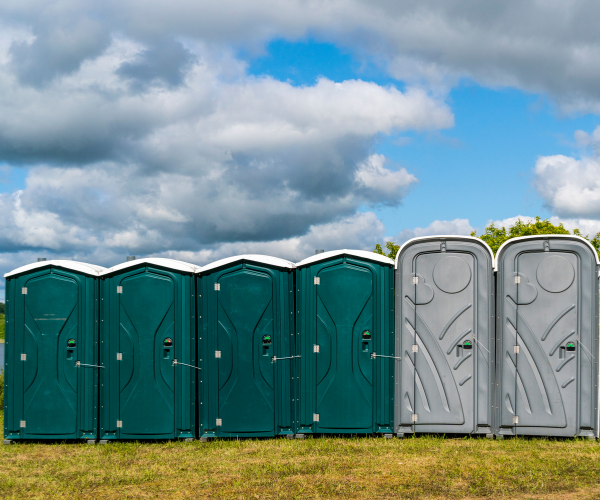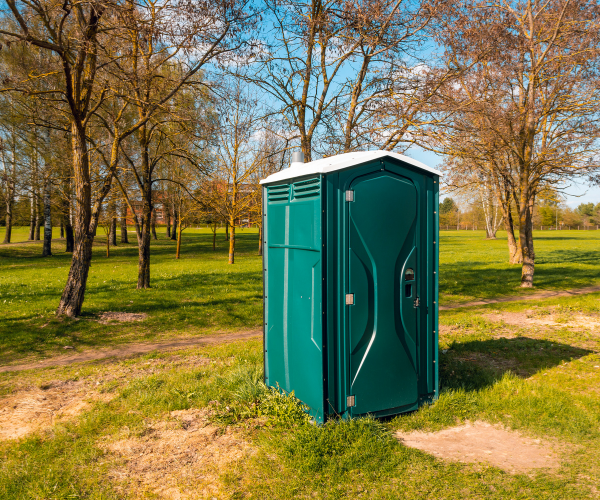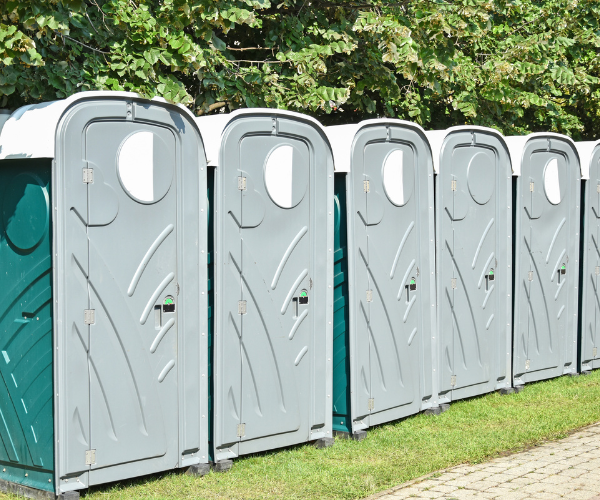Using Portable Toilets proffers significant eco-friendly advantages that reinforce sustainability. First, portable toilets drastically reduce water usage compared to traditional toilets, conserving this precious resource. They achieve this by employing chemical treatments, which minimize the need for water, making them invaluable in regions with limited water availability.Secondly, portable toilets curb the release of contaminants into the environment. By extricating waste in controlled settings and treating it properly, they prevent harmful pollutants from affecting local ecosystems. This structured waste management approach mitigates the impact on landfills, promoting environmental health.Additionally, deploying portable toilets in outdoor spaces, such as construction zones or events, helps preserve natural landscapes. Infrastructure development for permanent facilities often disrupts wildlife habitats. Portable toilets, on the other hand, provide a non-invasive solution that maintains the ecological balance.Moreover, modern portable toilets are manufactured using sustainable materials and processes that align with green standards. Many units incorporate recycled and recyclable components, reducing the ecological footprint from production through to end-of-life.In terms of energy efficiency, servicing these units often involves fewer emissions than maintaining traditional restrooms. Sanitation service vehicles operate on optimized routes, lessening fuel consumption.Finally, educating communities through the visible use of these units encourages broader support for sustainable practices. Demonstrating how functional and hygienic these eco-friendly solutions can be builds momentum towards more environmentally conscious decisions. Portable toilets thus symbolize a practical commitment to ecological stewardship, enhancing both social and environmental well-being through their strategic deployment.

Portable Toilet Rentals in Calhoun Falls, South Carolina
Call today for a free quote (864) 477-7907
Portable Toilet
Fast, Easy, & 100% Free To Get Started
Decades of Trusted Service
With over 25 years of experience, our company offers top-notch Portable Toilet services in Calhoun Falls. We are deeply rooted in the community and fully committed to ensuring customer satisfaction, making us the trusted choice for reliable sanitation solutions in the area.
Commitment to Superior Quality
Our portable toilets boast exceptional quality and cleanliness, ensuring sanitary and efficient solutions for any event or work site. We maintain our reputation for excellence through meticulous attention to detail, enhancing your experience every time.
Swift Delivery Service
Our timely delivery ensures your portable sanitation needs are met promptly and efficiently. We pride ourselves on quick response times, so you can count on us to deliver your portable toilets exactly when and where you need them.
Reliable Portable Toilet Solutions in Calhoun Falls
Call for a Free Quote Today
(864) 477-7907
In the heart of Calhoun Falls and surrounding areas, our portable toilet service stands out for its commitment to quality and reliability. Locally owned and operated, we ensure each client receives personalized attention and exceptional customer service. Our portable toilets are perfect for construction sites, festive gatherings, weddings, and more. Dependable and consistently clean, our units support events smoothly, leaving you stress-free. Trust us for your portable sanitation needs, knowing our standards set us apart as the region's trusted provider.


Our standard porta john rental units are durable and reliable for any commercial build site, housing development, public works project, or remodel job.Features include dome lighting, grated floors, and an “In-Use” locking mechanism for privacy and comfort. Regularly maintained, inspected, and cleaned by FusionSite at your location.

Developed as an alternative to full ADA-compliant restrooms, the Liberty is a spacious, wheelchair-accessible unit that can also be promoted as a family-sized restroom. Includes a patented flat-floor system for easy wheelchair access and maneuverability.Handrails, paper holder, and rotary latch are designed for simple, intuitive end-user operation.

Portable hand washing stations are essential for keeping your work site sanitary and clean. Features hands-free foot pumps, liquid soap, and paper towels.Perfect for job sites without water hookups, these units can handle hundreds of washes between services.
We Proudly Serve
Standard Portable Toilets
Standard Portable Toilets ensure dependable sanitation needs are met throughout South Carolina with LittleJohn Toilets.
High Rise Portable Toilets
High Rise Portable Toilets provide elevated sanitation solutions in Calhoun Falls, ideal for urban construction sites.
Restroom Trailers
Restroom Trailers by LittleJohn Toilets offer luxury bathroom experience for events in Calhoun Falls.
Roll off Dumpsters
LittleJohn Toilets offers Roll off Dumpsters for easy waste management in Calhoun Falls.
Septic Tank Cleaning
Expert Septic Tank Cleaning by LittleJohn Toilets maintains proper hygiene across South Carolina.
Grease Trap Cleaning
Grease Trap Cleaning in Calhoun Falls ensures uninterrupted, sanitary operation of kitchen facilities.
Fencing & Barricades
Efficient Fencing & Barricades services across South Carolina, provided by LittleJohn Toilets.
Residential Storage
Secure Residential Storage options available at LittleJohn Toilets in Calhoun Falls, South Carolina.
Calhoun Falls Sanitation Solutions Including Portable Toilets
Our Portable Toilet service offers unmatched convenience in both quotes and delivery. Getting a quote is as simple as visiting our easy-to-navigate website and filling out the straightforward request form. Either click the Get A Quote buttons or use the forms on the top or bottom of our pages to begin this seamless process. With just your straightforward details—first name, last name, phone number, and email—we start crafting the best package tailored for you. Rest assured, our dedicated team transforms requests into actionable plans, confirming every detail to meet your sanitation needs.Once your request is submitted, our responsive team rapidly engages, ensuring you receive competitive rates reflecting our superior service standards. We pride ourselves on delivering comprehensive packages that detail all costs upfront, avoiding unexpected surprises. Our commitment to clarity and transparency has fostered trust with our clientele in Calhoun Falls and beyond.Delivery logistics are handled with the utmost efficiency and precision. Whether you are overseeing a bustling construction site or hosting an elegant outdoor wedding, our scheduling ensures your portable toilets arrive promptly, right where you need them. The coordination between our logistics team and your event planners guarantees a frictionless service, synonymous with reliability and professionalism.Beyond promptness, our delivery service champions flexibility, accommodating last-minute changes without compromising quality. Enthusiastic and knowledgeable drivers ensure setup aligns perfectly with your specified requirements, maximizing convenience and utility.In Calhoun Falls, our Portable Toilet service is renowned for harmonizing efficiency with excellence. From the initial quote to the final delivery, we maintain a customer-centric approach that strengthens ongoing relationships, establishing a reputation as the preferred choice for portable sanitation solutions.

Calhoun Falls Portable Toilet ExcellenceNestled within the charming locale of Calhoun Falls, our Portable Toilet services blend reliability with local charm. We understand that cleanliness and functionality are paramount, especially amidst the area's beautiful outdoor attractions like the serene Lake Russell. Whether it's a cozy community event or the lively Calhoun Falls Bluegrass Festival, our units ensure unrivaled guest satisfaction.Unmatched Local AppealOur expertise extends to understanding local nuances that make each event in Calhoun Falls unique. From celebrating the natural beauty at Blue Hole Recreation Park to participating in community gatherings, our portable toilets enhance every experience, adding convenience for residents and visitors alike.With a focus on dependable, quality service, we position ourselves as the top choice for portable sanitation in Calhoun Falls. Each unit is meticulously maintained, aligning with our promise to deliver excellence around the clock. Embrace the benefits of our service where attention to detail meets a commitment to enhancing any occasion.
Choosing Excellence in Calhoun FallsOur company prides itself on exceeding expectations, consistently emerging as the preferred provider of portable toilets in Calhoun Falls. With deep community roots and an unwavering dedication to quality, we deliver trusted solutions for diverse needs.Each service is tailored to local demands, affirming our reputation as the go-to solution for portable sanitation. Our portable toilets offer reliability and cleanliness, with quick response times that serve any event. Experience a service where excellence aligns seamlessly with community needs, solidifying our position as the best choice in Calhoun Falls.
Fast and Reliable ServicesOur portable toilet delivery service prioritizes efficiency to ensure punctual deliveries tailored to your schedule. Focused on reliability, we align availability with your event timetable, safeguarding our well-earned reputation in South Carolina.Our team quickly addresses urgent demands, offering swift, dependable solutions for various landscaping projects, wedding venues, and large-scale gatherings. Partner with the Calhoun Falls service that instinctively recognizes the importance of readiness and reliability, offering peace of mind every step of the way.
Discover Our Portable Toilet Solutions in Calhoun Falls
Renting a Portable Toilet in Calhoun Falls is straightforward and designed for ease of use. Start by navigating to our user-friendly website, where convenience is just a few clicks away. Our Get A Quote buttons are prominently placed across all pages, enticing you to explore our competitive rates. Should you wish to fill out an inquiry form, they are strategically located at both the top and bottom sections of our site. These forms require minimal details: simply your first name, last name, phone number, and email.Once completed, submitting the form sets our expert team into motion, tailoring an offer that suits your specific requirements. Our responsive customer service ensures your needs are addressed promptly, with transparency maintained throughout the rental process.Our platform's streamlined operation facilitates immediate feedback, giving clients valuable peace of mind. Following up with personal interactions further enriches this seamless experience, allowing us to address any residual queries.Moreover, our site's intuitive understanding of user navigation preferences makes information accessible. You'll find the renting conditions, service locations, and even additional amenities, all supplemented by vivid imagery that showcases our products.Feel free to reach out by telephone as well, where knowledgeable representatives stand by to assist you, ensuring an efficient rental journey. We believe that providing multiple channels maximizes customer engagement, catering to various preferences while ensuring satisfaction.Incorporate our rental procedures into your event planning with ease, knowing every Portable Toilet is just steps away. Our commitment to client encouragement and operational simplicity reflects unwavering professionalism, making us the go-to choice for Portable Toilet Rentals across Calhoun Falls.
The typical delivery timeframe for Portable Toilet orders is contingent on several accommodating factors, designed to meet your specific needs. Our commitment to timely service ensures efficiency, typically delivering units within 24 to 48 hours from order confirmation. However, the timeframe can be adjusted for urgent requests, affirming our dedication to flexibility.Initial consultations help us understand exact requirements – factoring in location logistics, unit count, and any event-specific considerations. This approach allows us to tailor our delivery services appropriately, providing peace of mind through added personalization.When placing an order with us, our system immediately registers the request, alerting our logistical team to prepare. This seamless integration allows for swift execution, capitalizing on our well-structured dispatch network that covers Calhoun Falls extensively.Enhanced with satellite tracking, our fleet navigates the quickest routes, optimizing delivery times without compromising safety. Notifications keep you informed at every stage of transit, reducing stress associated with event preparations.For larger events or ongoing projects, scheduling in advance ensures priority handling of your order, with repeat services available on demand. Communicate your requirements and we'll coordinate effectively, nurturing reliability at a foundational level.Such systematic practices strengthen our portfolio, underpinning the loyalty of clients who trust us for consistent results. Whether short-term or strategic long-term engagements, our prompt, effective delivery solution aligns with all client expectations.Furthermore, unexplained delays are minimized through proactive problem-solving, rooted in our comprehension of site conditions and operational dynamics. Thus, our commitments extend beyond mere delivery – they embody a partnership dedicated to organizing successful occasions.
We expertly cater to any event or construction site with our broad array of portable sanitation solutions. Our comprehensive offerings include luxury restroom trailers, convenient porta potties, and versatile roll-off dumpsters. Whether you are organizing a lively festival or an elegant wedding, our facilities set a high standard for sanitation.Our services extend to corporate events, family reunions, sports gatherings, and similar celebrations. To ensure inclusivity, we offer ADA-accessible units and complement them with hygienic portable sinks and sanitizer stations for thorough cleanliness.On construction sites, our solutions align with both safety and sanitation requirements. Rely on us for efficient fenced enclosures that add security and maintain necessary order for smooth operations. Our adjustable configurations suit various site needs, enhancing service accessibility and user convenience.Our advanced logistics synchronize with your schedule, guaranteeing timely installation and uninterrupted progress under all conditions.From your initial inquiry to the completion of your event, our service process demonstrates a commitment to quality and flexibility. Our service catalog adapts to project scale and specifications, while our skilled professionals proactively address logistical challenges.Leverage our local expertise to precisely identify and meet your event's requirements, exceeding your expectations through strong partnerships and sophisticated solutions. Your events and projects deserve exceptional sanitation support, reinforcing our reputation as a provider that delivers consistently.

